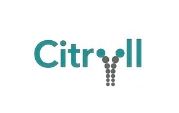
Dutch biotech Citryll has raised €15m ($17m) in first-round financing to help advance its new therapeutic approach to autoimmune diseases.
The company – which span out of contract research and laboratory tool company ModiQuest in 2015 – is developing a platform based on antibodies that prevent the formation of neutrophil extracellular traps (NETs), though to play a key role in autoimmunity.
NETs are networks of extracellular fibres, primarily composed of DNA from neutrophils, which bind to invading pathogens and are a part of the body’s immune defence that doesn’t involve damage to host cells.
In some autoimmune disease such as lupus, vasculitis, pulmonary fibrosis, rheumatoid arthritis and organ damage due to sepsis, it is thought that NETs inadvertently react to host cells, stimulating the release of autoantigens – particularly citrullinated proteins – as well as inflammatory proteins and other toxic compounds.
The new funding will go towards the continued development of Citryll’s lead programme tACPA, which is designed to interfere with the production of NETs, a process catalysed by the peptidylarginine deiminase (PAD) enzyme pathway. tACPA binds citrullinated histones that are believed to be essential for NET formation.
Other companies including Bristol-Myers Squibb (via its $600m acquisition of Padlock Therapeutics in 2016) are working on small-molecule PAD inhibitors for autoimmune disease. Citryll thinks however that its approach – which works downstream of PAD – will be more specific to disease-associated NETs and won’t involve blockade of normal PAD functions that could lead to side effects.
Helmuth van Es
Citryll’s chief executive Helmuth van Es believes that drugs that interfere with NETs and their production “have the potential to create game changing new treatments to prevent or treat human diseases.”
He explains: “Citryll’s approach does not broadly target inflammation or acquired immunity, instead it extinguishes the source of autoantigens and (NET)-derived toxic molecules in the safest way currently possible.”
The €15m in Series A funding, backed by ModiQuest, BOM Brabant Ventures, BrightGene, and Curie Capital, will be used to progress Citryll’s tACPA antibodies through preclinical and clinical development.




